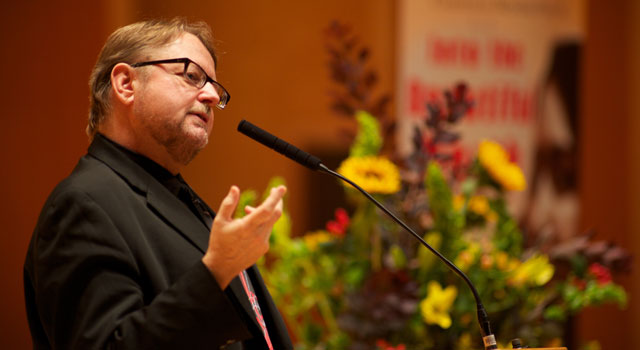Page 126 • (3,216 results in 0.035 seconds)
-
PLU Requirements 253.535.7653 www.plu.edu/physics/dual-degree/ nsci@plu.edu Bogomil Gerganov, Ph.D., Director In order to earn a PLU degree in the Dual-Degree Program, the following requirements must be satisfied: Completion of the following science and mathematics courses, paired with a Bachelor of Arts in Physics or Chemistry major, as specified below 44 semester hours MATH 151, 152, 253 (12 semester hours) MATH 351 or PHYS 354 (4 semester hours) PHYS 153, 154, 163, 164, 223 (14 semester
-
experience. Students choose between tracks in Business Administration or Management Science and Quantitative Methods. The Business Administration track focuses on strategy, innovation, and effective decision making. In Management Science and Quantitative Methods, students will be introduced to the quantitative methods used in all areas of Business Analytics. Students may also choose to earn an emphasis with their degree in Entrepreneurship and Closely-Held Enterprise, Healthcare Management, Supply Chain
-
delivered pizza. And they’ll be doing it for a mere four credits. Four. “This is the toughest class they will ever take,” says Kakar. “It is equal to 20 credits, easily.” Kakar, an assistant professor of computer science and computer engineering, is advising the trio of students in their senior-year capstone. He will guide and mentor the students for a whole year as they embark on the ambitious project of designing – from scratch – a remote-control car that is operable over the Internet. If the capstone
-
interconnectedness (these processes can be social, artistic, literary, political, religious, economic, and/or environmental) Become involved citizens, both locally and globally For more information, go to the Wang Center for Global and Community Engaged Education home page.
-
can a figure be understood for what it expresses and communicates to the people who made it, and the context in which it is used, whether religious, social, educational, political or economic.Figures Yoruba Agere IfaBongo Grave postLobi 1Lobi 2Mossi Ninana PostMoba Tchitcheri Shrine Figure
-

previously studied in classes on PLU’s campus—a very exciting prospect. The study away class includes both art majors and minors as well as students enrolled in PLU’s International Honors (IHON) program. This experience will encourage students to take a critical look at the way that museum collections and exhibitions are intertwined with things like national cultural identity, political goals, and education. Students are challenged to be curious about the ways that art, architecture, archaeology, and
-
and political zone. They offer an artistic way to explore and grapple with the complex legacies of conflict, labor camps, colonialism, and nationalism as well as the opportunities and challenges of contemporary life in the region. In this talk, I propose reading Mediterranean waterscapes and geographic landscapes through comics of colonial conscripts (Senegalese tirailleurs and Moroccan goumiers) and WWII refugees. I coin Mediterranean bande dessinée of mobility and internment as a reference to a
-
history, literature or art. Similarly, a course in anthropology on Africa’s religious pluralism might also include perspectives on the topic from other disciplines, such as history, economics or literary studies. Historical and Internationally Focused Study: IHON courses ask students to recognize the cultural and historical contexts that shape every artistic, economic, philosophical, political and religious creation. Course themes are also situated internationally, that is, course material is drawn
-

. According to Zink, the program helped ease some of the awkwardness of meeting new people. “I liked reading a book with everyone because it gave you something to talk about.” Read Previous Government scientist shares passion for empowering women and minorities Read Next Lutheran Studies conference examines the Lutheran perspective on political life COMMENTS*Note: All comments are moderated If the comments don't appear for you, you might have ad blocker enabled or are currently browsing in a "private
-

by Seattle CityClub in 2016 to bolster the number of high-quality, nonpartisan debates available to the public, echoes that sentiment. With 1,800 debate attendees and more than 1 million television and streaming viewers in its first year, the Coalition has succeeded in making political candidates for public office more accessible to voters. “When neighborhoods are underrepresented, they lose their voice,” Eckstein said. “By bringing this debate to the area, we’re working to enhance our community
Do you have any feedback for us? If so, feel free to use our Feedback Form.


